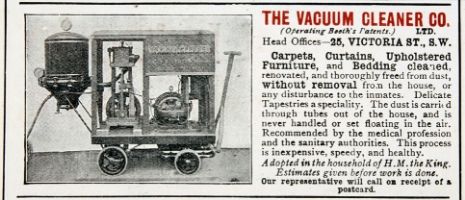
When spoken aloud, copywrite and copyright sound identical, but they are different beasts from different worlds.
Copywriting is a form of persuasive writing seen in advertising and marketing. In comparison, a copyright is the exclusive right of ownership to original creative works like stories, books, images, songs, movies, and plays. In the United States, copyrights are registered with the Library of Congress.
The Copyright Act of 1975 expanded copyright protections in the United States, giving copyright owners legal claim to adaptations derived from their work, such as a screenplay based on a novel.
What is Copywriting vs Copyrighting?
Copyrighting is the act of getting a copyright.
Copyright dates to the writing of the Constitution of the United States of America. When the Founding Fathers established laws for the new nation, they wanted to encourage creativity and inventiveness.
They understood that original artistic and intellectual works were a cornerstone of a sound economy. The primary purpose of a copyright is to promote the evolution of science and ideas.
To encourage creativity and the publication of ideas, Article I, Section 8 of the United States Constitution gives the creator a limited monopoly over his work.
This limited monopoly is called a copyright and conveys to the creator an exclusive bundle of rights.
Copywriting is much different and refers to the act of writing ad copy. Newspapers began offering print advertisements as early as the mid-15th Century.

Three hundred years later, in the mid-19th Century, the text in a print advertisement became known as copy and the person who wrote that text was called a copy writer, or copywriter.
It’s been said that copywriting is selling in print. As advertising and marketing evolved, so did the job of the copywriter. Today, ad copy is everywhere from product packaging to presidential campaigns.
And the job of the copywriter takes many forms. A professional copywriter may write the copy for a digital marketing campaign, plan its launch and oversee its execution.
How Do You Get Something Copyrighted?
Technically, any creative work is copyrighted the moment it is created. However, that alone will not protect a copyright claim.
If two people claim ownership to a work, the person who can prove they are the owner wins. That can’t be done unless the copyright is registered.
In the United States, copyrights are registered with the Library of Congress at Copyright.gov.
Copyright attorneys will register a copyright for you, but the Copyright.gov website makes it relatively easy to do it yourself.
The standard copyright fee is $35.
The Copyright Office has a backlog of applications. It will probably take several months before you receive copyright documents in the mail. However, when you apply online, your copyright is in force from the moment you complete the application process.
What Does it Mean to Have a Copyright?
When you have a copyright, you have exclusive right to the work you created and all its variations. If you wrote a novel, a copyright gives legal claim to a bundle of rights associated with it.
For example, Marvel owns the copyright to Iron Man.
Iron Man first appeared in a comic book. Marvel owns the original story and all the characters in it, plus every variation of the story and characters, including movies, cartoons and teleplays.
If you wrote a novel with a character named Moon Man, by copyright, you would own the story and the character, plus every variation.
The bundle of rights a copyright gives you includes publishing rights, film rights, digital rights and more. You could sell off the film rights to a movie studio and still own the publishing rights.

What Does Copywrite Mean?
Copywrite or copywriting, is the process of using words to persuade someone to take a specific action. The term originated during the early years of print advertising and is generally understood to mean selling with words.
The text in print advertisements seen in newspapers is called advertising copy or ad copy. Initially, the person who wrote the text, or copy, in print ads was known as a copywriter.
Today the term has a much broader understand to mean a person who creates persuasive material intended to move a reader or viewer to take a specific action is a copywriter.
What is the job of a copywriter?
In the 21st Century, a copywriter may create advertising copy, sales letters, internet copy, press releases, customer communications, marketing communications, branding copy and more.
A copywriter writes the words that are printed, spoken or presented in any kind of marketing or publicity piece. Their work includes every form of communications media; radio, television, digital, and print.
Technically, a copywriter creates every element of a promotion, such as the headline, the lead and body of text, slogans, image captions, dialogue and where appropriate stage directions.
In addition to creating the text and materials for a promotional campaign, an experienced copywriter might also plan the marketing strategy and oversee its execution.
Copy is used to persuade prospects to buy just about every product or service on earth. It’s also used to promote websites, companies, agencies, politicians and their parties, charities, ideas, celebrities, hospitals, religious organizations and more.
Anywhere words are needed to persuade, there is a need for a copywriter.
Other Names for a Copywriter.
Copywriters are not the only ones writing persuasive copy. Below is a partial list of other professions who also write persuasively for their job.
- Technical writers
- Speechwriters
- Business writers
- Public Relations Manager
- Marketing manager
- Advertising scriptwriter
- Direct response writer
- Jingle writer
- Multimedia writer
How Do You Become a Copywriter?
Copywriting might be the perfect career choice for a frustrated novelist or screenwriter, or anyone who enjoys playing with words.
Unlike creative writing where success is rare and often like winning the lottery, copywriting is easier to learn and pays well.
Freelance copywriting does not require a formal education. The only requirement to be hired as a copywriter is to demonstrate you can do it and get results for your client.
Copywriting is one of the few skillsets that can dramatically impact a company’s bottom line. If you can make money for your clients or employer, that’s proof enough.
However, not everyone can write. If you can, better yet, if you love to write, that’s a good start.
Although you don’t need a college education to be a copywriter, but you need to know the mechanics of persuasive writing. Fortunately, the mechanics of copywriting are well established. You can learn them from a book.
Just knowing the mechanics of copywriting is not enough to be a good copywriter.
Good copywriters can use words to stir emotions in the reader and move them to perform an action or accept an idea. This ability takes more than established formulas and methods.
It takes empathy and insight into the human condition. Not everyone has that.

If you want to learn copywriting, avoid expensive courses in the beginning. You can learn the basics from a book. I recommend Steve Slaunwhite’s “The Everything Guide to Writing Copy.”
Get the paperback. It’s about $20 on Amazon.
Slaunwhite’s book will help you understand the details of copywriting and what to expect in the profession.
Because there are several expensive copywriting courses online that pitch anyone can succeed in copywriting and make big bucks, there is a misconception that copywriting is easy.
It’s not. However, if you enjoy writing and sales, it can be a lot of fun and very rewarding.
Before investing your time and treasure in costly training, read Slaunwhite’s book and write some projects. You might discover it’s not for you, or you might realize this is your future.
Reality Check.
Every career path has some good and some bad. A copywriting career begins with a passion for writing and the ability to persuade others with your words.
There are several misconceptions about copywriting, particularly freelance copywriting. Again, I think companies selling expensive copywriting training would like you to believe it’s an easy, carefree way to make a lot of money.
The truth is, copywriters spend a lot of time alone sitting at a computer, writing and rewriting.
A copywriter who is employed by a company or agency might be limited to what they can earn. A freelancer has more earning potential, but he may also experience lean times when work is not coming his way.
Also, a copywriter must content with a boss even if she’s self-employed. Every client a freelance copywriter works for is her boss. In addition to confidence and killer writing skills, a freelance copywriter must be a courageous self-promoter and networker
The Last Word on Copywriting and Copyright.
We began with the simple inquiry of the difference between copywriting vs copyrighting.
Copyright is a legal right. It is the claim of ownership regarding a creative work. It usually includes a full bundle of rights which can be retained, sold, leased, optioned or given to someone else.
Copywriting is the process of writing, specifically, the process of writing persuasively in advertisements and marketing.
The Best Copywriting Guide.
Copywriting is a simple and mostly mechanical process. To learn everything you need to know about copywriting, read The Best Copywriting Guide.
The Easiest Writing Career.
Copywriting is one way to cash in on your love of writing, but there are many other ways too. Regardless of the path your choose, there will always be negatives to overcome.
The easiest career for anyone who loves to string words together might be blogging. I think it’s one of the fastest ways to turn your love of writing into an income.
As a blogger, income can be generated in a number of ways without clients or bosses and without leaving the home. To learn more, read The Easiest Writing Career.

